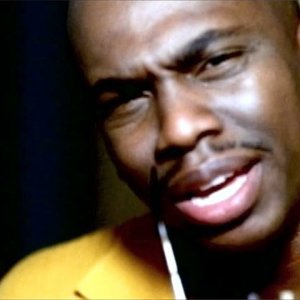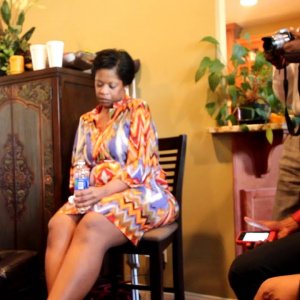I can relate...
" WHEN ARE YOU PEOPLE GOING TO GET OVER IT ?....I AM SO TIRED OF YOU PEOPLE USING SLAVERY AS AN EXCUSE FOR EVERYTHING... "
HMMM......A WHITE MAN SAID THAT TO ME IN AUGUST OF 1988 .....I WAS PROCESSING OUT OF THE AIR FORCE AT THE TIME.....AND THE BROTHER WHO WAS DOING MY PAPERWORK HAD JUST BEEN ORDERED TO DO SOME MORE PAPERWORK ON TOP OF MINE , AND THERE WERE THREE OTHER WHITE BOYS SITTING AT THEIR DESKS........DOING NOTHING...
WARRIOR
I can really relate to this story and, I have one too, that I'd like to share:
Here’s my story regarding this very subject:
One day when I speaking with a girl I had met through the Foreign Language Department at a nearby university I had frequented, I was confronted with this same advice. This particular girl, young lady, had earlier told me that she was Jordanian but after a couple of weeks she felt safe enough to confide in me and so, she told me that she was really ‘a Palestinian’ and that she was not from Jordan. Well, it made no difference to me but, she informed me that it made a difference with White America. She felt comfortable enough to also shed some more light on her cultural experiences with coming to America. This young lady from Palestine was beige in complexion, with sandy brown hair, and she looked like a typical White American girl at first glance. She dressed western and had no head covering. She had told me that when she had finally gotten to America, she was completely shocked to see that there were Black people in America. In all of her life she was made to think that there was no Blacks at all in America. She eventually phoned me a few months later to tell me that a white woman, a doctor at the university told her not to converse with me or African Americans and so, she completely broke communications with me after that very phone call. However, she had already opened my eyes enough; . . . that white woman was wise but, she was too late!
After awhile, that confessed Palestinian girl made me realize that it was probably because of ‘a new thing going on’ with the government that she and other people in the world were being made ‘strategically’ aware of the Black presence in America, by and by. In my opinion, I think that the ‘OJay trials’ and the Oprah Winfrey shows going on at that time in the 90s were two events that may have been carefully ‘allowed’ to be the opener of eyes to the world to our significant presence here in America. I completely understood her dilemma with the shocking revelation of the Black presence in America because I was able to flip her conversations and look at her ‘ironic circumstances’ from other points-of-view.
It took a while for me to grasp the idea that the entire time I was learning about history in Europe and the rest of the world, the dominant presence of Blacks in Europe had never been apart of my education. I had to learn to put it all together myself by reading extra and looking at extra films. The same time we were going through civil rights movements, so did England and so did Australia and etc.! It was very difficult to grasp that the Black people in Europe and elsewhere also had civil rights movements and noteworthy blacks that well, we still don’t know about today! Anyway, this Palestinian girl told me that in her country of Palestine, she saw the movie Roots when it became aired in subtitles and, it was so popular and such a major film that mostly every Palestinian went to see it at the theatres. Nonetheless, she never put it altogether to realize that Blacks were indeed in America. She also said that before she came over here, she had to attend several preparatory seminars. In the seminars they are taught how to choose safe neighborhoods to live in, how to stay away from certain areas and communities, and how to avoid being mugged and what to do in case of being put in dangerous situations. She said they had films with models (actors and actresses) demonstrating how to hold your purse (bag) when walking down the street and how to act if mugged and etc. She said that all of the models were white people and so, when she finally got here, she was shocked to see that there were blacks. This Palestinian girl said that she never equated the movie Roots, nor the warning about dangerous neighborhoods with the presence of Black people in America until she came here. She said that she thought that . . . She ended her sentence abruptly. She never finished what she was going to say. I just look at her, . . . kind of dumbfounded myself. I later realized what she was made to think. Eventually and the more we met and after our academic sessions would end, she would initiate conversations and I slowly recognized that this Palestinian girl’s viewpoint began to form against Black America.
One day after our class, she abruptly asked me how I felt about the movie, ‘Gone with the Wind’ and before I could answer she told me that she had loved it. Well, I snapped and said that I detested it. After awhile, I began to observe her and realized that she was trying to incite me to fit her forming mindset about African Americans. I detected deception. At another time after class, she abruptly said one day, “Black people should forget about slavery. That is over. It happened a long time ago.”. Then I spoke. I called her name slowly and decided to ask her a couple of questions. I asked,
“You Palestinians are mostly Muslim, correct?”
She answered me, “Yes.” Then I asked,
“You all adhere to the Koran, yes? Then she said,
“Yes.” I continued,
“You observe your holiday events that have occurred thousands of years ago, White America too, celebrate EASTER and events that have happened thousands of years ago, and slavery in America has happened only hundreds of years ago, correct?”
And again, she said, “Yes.” Then I asked,
“the Koran begins with the first five Books of Moses, yes?” And, she said,
“Yes.” Then, I decided it was time to conclude on her. And so I said to her,
“ In the first five book of Moses, and after the Exodus, the Bible does not tell the descendants of Israel that slavery is now over and so forget about it. In fact, [I called her name], the Bible specifically says that God told the Children of Israel,
‘Don’t you ever forget your captivity and how the Egyptians treated you. And if you do, I shall surely curse you’. Then, I was quiet and I looked at her.
Well, she was seated the whole time until that point. Instantly upon my silence, she quickly stood up from the table where she was seated and grabbed her cigarette. She turned and walked between the table and where I was standing and hid behind a wall. I could only see her cigarette and her hand as she raised it, took a pull, and then lowered it. About a minute or two of quietness and after a puff of smoke came out, she finally said to me in a low voice,
“[she called my name], you are right.”.
I was quiet, forgiving, but still angry. As I stated previously, we communicated for few more months until she told me one day that a professor from the university, a British woman, told her to stop communicating with me and to stop giving me lessons on the Arab language and script form. I realized that it was because she was Palestinian that I was able to receive such an education on the ways of this world but, had she been truly Jordanian then probably, . . . I’ll stop here.





